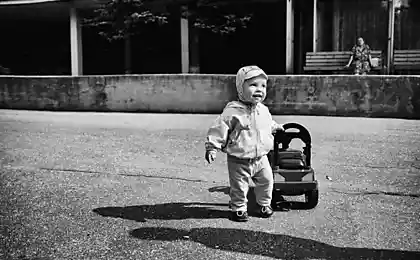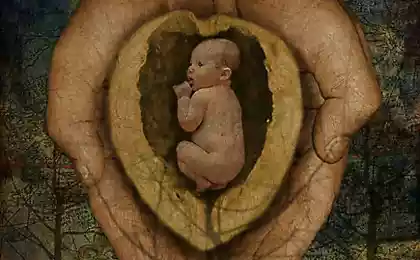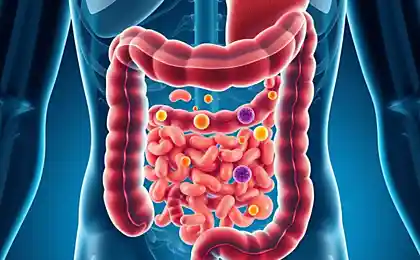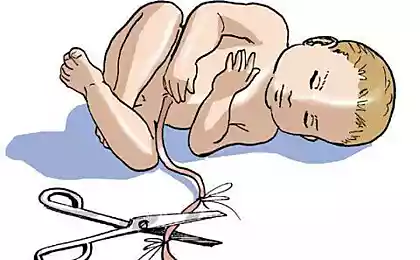412
Education begins even before birth: the Chronicles of life before birth
The Chronicles of life before birth
Many of you already well know from their own experience that physical and mental health are one. But few know that the primary health is laid from conception to the first year of life. There is a close link between emotional experience and the experiences of pregnant women and emotional experience of the fetus. Good genes is only one of the conditions of the birth of a healthy baby.
More importantly, what were the conditions of development inside the uterus. Because each organ or system has its own critical periods of development. And the environment, especially during specific sensitive phases, can influence the child in utero, and probably for the rest of his life.
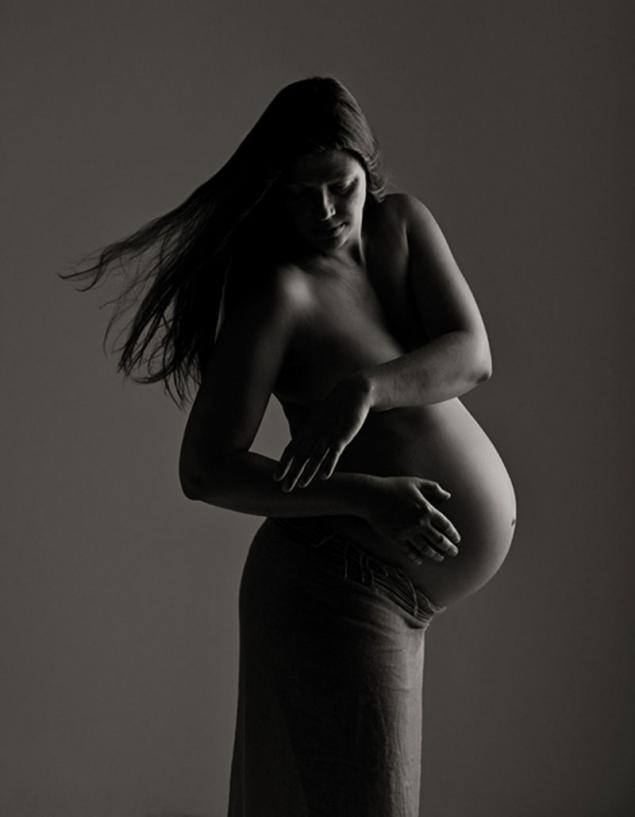
You wonder what has happened to you during pregnancy with your mom?
Here are a few facts that were obtained as a result of scientific medical research.
It is known that a normal pregnancy lasts nine months and is divided into three periods, each for three months, called trimesters: first, second, third.
So, by the end of the first trimester the nervous system and sense organs developed well enough. For example, touching the lips (during intrauterine examination) fetus responds with sucking and touching centuries – narrows his eyes. I.e. at this time the brain sends an adequate signal to the muscles in response to stimulation.
At the 14th week was discovered and photographed reactions such as mowing eyes and a mocking smile. With a 6-month fixed pout, frown, tense muscles around the eyes. By 17 weeks, all parts of the body respond to the touch.
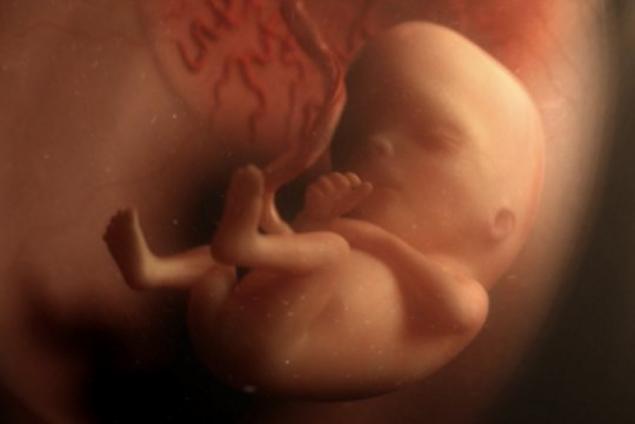
Differentiation of the brain in the female and male type begins in utero and leads to significant differences between boys and girls in this period. The girls in this period are more developed communication skills, they spend more time closer to the wall of the uterus and listening to the sounds of human speech. And the boys are more developed motor and spend more time in physical exercises.
When covering the abdomen of the mother, the fetus reacts with increased heart rate, which confirms the sensitivity of the fetus to the light. Newborn babies have developed the ability to distinguish their parents from other adults.
At 14 weeks the fetus can already feel the taste of amniotic fluid (amniotic fluid), he tastes, swallows and various grimaces responds to a change of taste. Studies have shown that third trimester babies drink from 15 to 40 ml per hour. When you add in the amniotic fluid of a substance with a bitter taste they cease to drink it. And when you add sucrose – double your diet.Alcohol and nicotine suppress the appetite of a cherished child.
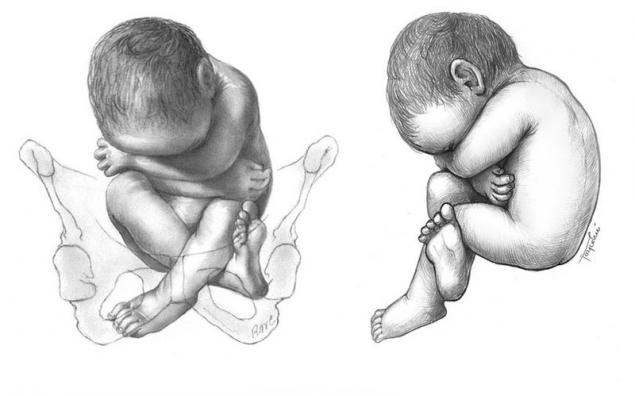
The most developed of fetal auditory sensitivity. The uterus is a very noisy place: here and the sound of the placental blood flow, and heartbeat of the mother, and the sound of her voice, the sounds of the stomach and intestines. The preferred sound is, of course, the beating of mother's heart, it was from him depends the life and health of the fetus in the womb. If a mother's heart beats fast – this leads to a deficiency of oxygen and nutrition and can cause painful reactions in the fetus. If Smoking pregnant woman just thinking about cigarette – started a complex chain of biochemical reactions, it increases heartbeat, and the fetus begins to rush desperately, sensing that he will soon get enough oxygen. The result is narrowing of the blood vessels of the mother.
Vestibular sensitivity is generated through a month after conception. This system provides the timing of the movements of the mother and fetus. Activity of the fetus are subordinated to a certain rhythm (about 45 min 45 min sleep and wakefulness).
The child avoids any pressure from outside, quickly changing the position in the uterus. The baby moves in the uterus, spiral spinning with your feet and legs, rotate the torso 180 degrees. Each such movement is manifested in the perfect coordination of brain and body.
Generally it is busy all the time. Then he drinks the amniotic fluid, diverse moves, sucking fingers, playing with the umbilical cord, stroking and even licking the placenta, stroking his body and face.
The vestibular system of the fetus is well stimulated when the mother is walking, dancing, changing their position etc. If mommy most of the time spends in bed, the child may come touch hunger.
By the way, swaddling, after birth, prevents the child to make such a usual and necessary traffic. In motion, he quickly adapts to life in a new environment, in terms of gravity. His first movement out of balance, like the astronauts who landed after a long flight into space.
Primary the child's brain is formed in the very early stages of life, during fetal life, birth and infancy. Therefore, information entering the brain during this critical period, it affects the further development. Important the primary structure of the brain is the hypothalamus.
The hypothalamus is the regulator of hunger, thirst, sexual rhythms, it manages the hormonal secretion of various endocrine glands, including the pituitary gland. He produces hormones that regulate other endocrine glands and is the link between the endocrine and nervous system.
Hormones, peptides, amino acids are important substances that are produced by cells of the nervous system and functioning in information traveling between brain and body through all body fluids. The immune system works with them. When the operation of the divisions don't exist.
Endorphins – pleasure molecules produced in the pituitary gland, found in the bloodstream of a child with the 17th week of pregnancy. To 12-week functioning pituitary gland is similar to the pituitary adults. The appearance of neuropeptides in the second trimester of pregnancy in the base of the brain linked to memory formation and emotions.
So when you caress a human baby, or when talking to the fetus in the womb or when the mother listens to music, dances and strokes her belly – she's all action stimulates the immune system of the child.
However, just as the negative effects during this period can destroy built the Foundation for physical and mental health. published
Author: Irina Sazonova
P. S. And remember, just changing your mind - together we change the world! ©
Source: cross-club.ru/321-vospitanie-nachinaetsya-do-rozhdeniya.html
Many of you already well know from their own experience that physical and mental health are one. But few know that the primary health is laid from conception to the first year of life. There is a close link between emotional experience and the experiences of pregnant women and emotional experience of the fetus. Good genes is only one of the conditions of the birth of a healthy baby.
More importantly, what were the conditions of development inside the uterus. Because each organ or system has its own critical periods of development. And the environment, especially during specific sensitive phases, can influence the child in utero, and probably for the rest of his life.

You wonder what has happened to you during pregnancy with your mom?
Here are a few facts that were obtained as a result of scientific medical research.
It is known that a normal pregnancy lasts nine months and is divided into three periods, each for three months, called trimesters: first, second, third.
So, by the end of the first trimester the nervous system and sense organs developed well enough. For example, touching the lips (during intrauterine examination) fetus responds with sucking and touching centuries – narrows his eyes. I.e. at this time the brain sends an adequate signal to the muscles in response to stimulation.
At the 14th week was discovered and photographed reactions such as mowing eyes and a mocking smile. With a 6-month fixed pout, frown, tense muscles around the eyes. By 17 weeks, all parts of the body respond to the touch.

Differentiation of the brain in the female and male type begins in utero and leads to significant differences between boys and girls in this period. The girls in this period are more developed communication skills, they spend more time closer to the wall of the uterus and listening to the sounds of human speech. And the boys are more developed motor and spend more time in physical exercises.
When covering the abdomen of the mother, the fetus reacts with increased heart rate, which confirms the sensitivity of the fetus to the light. Newborn babies have developed the ability to distinguish their parents from other adults.
At 14 weeks the fetus can already feel the taste of amniotic fluid (amniotic fluid), he tastes, swallows and various grimaces responds to a change of taste. Studies have shown that third trimester babies drink from 15 to 40 ml per hour. When you add in the amniotic fluid of a substance with a bitter taste they cease to drink it. And when you add sucrose – double your diet.Alcohol and nicotine suppress the appetite of a cherished child.

The most developed of fetal auditory sensitivity. The uterus is a very noisy place: here and the sound of the placental blood flow, and heartbeat of the mother, and the sound of her voice, the sounds of the stomach and intestines. The preferred sound is, of course, the beating of mother's heart, it was from him depends the life and health of the fetus in the womb. If a mother's heart beats fast – this leads to a deficiency of oxygen and nutrition and can cause painful reactions in the fetus. If Smoking pregnant woman just thinking about cigarette – started a complex chain of biochemical reactions, it increases heartbeat, and the fetus begins to rush desperately, sensing that he will soon get enough oxygen. The result is narrowing of the blood vessels of the mother.
Vestibular sensitivity is generated through a month after conception. This system provides the timing of the movements of the mother and fetus. Activity of the fetus are subordinated to a certain rhythm (about 45 min 45 min sleep and wakefulness).
The child avoids any pressure from outside, quickly changing the position in the uterus. The baby moves in the uterus, spiral spinning with your feet and legs, rotate the torso 180 degrees. Each such movement is manifested in the perfect coordination of brain and body.
Generally it is busy all the time. Then he drinks the amniotic fluid, diverse moves, sucking fingers, playing with the umbilical cord, stroking and even licking the placenta, stroking his body and face.
The vestibular system of the fetus is well stimulated when the mother is walking, dancing, changing their position etc. If mommy most of the time spends in bed, the child may come touch hunger.
By the way, swaddling, after birth, prevents the child to make such a usual and necessary traffic. In motion, he quickly adapts to life in a new environment, in terms of gravity. His first movement out of balance, like the astronauts who landed after a long flight into space.
Primary the child's brain is formed in the very early stages of life, during fetal life, birth and infancy. Therefore, information entering the brain during this critical period, it affects the further development. Important the primary structure of the brain is the hypothalamus.
The hypothalamus is the regulator of hunger, thirst, sexual rhythms, it manages the hormonal secretion of various endocrine glands, including the pituitary gland. He produces hormones that regulate other endocrine glands and is the link between the endocrine and nervous system.
Hormones, peptides, amino acids are important substances that are produced by cells of the nervous system and functioning in information traveling between brain and body through all body fluids. The immune system works with them. When the operation of the divisions don't exist.
Endorphins – pleasure molecules produced in the pituitary gland, found in the bloodstream of a child with the 17th week of pregnancy. To 12-week functioning pituitary gland is similar to the pituitary adults. The appearance of neuropeptides in the second trimester of pregnancy in the base of the brain linked to memory formation and emotions.
So when you caress a human baby, or when talking to the fetus in the womb or when the mother listens to music, dances and strokes her belly – she's all action stimulates the immune system of the child.
However, just as the negative effects during this period can destroy built the Foundation for physical and mental health. published
Author: Irina Sazonova
P. S. And remember, just changing your mind - together we change the world! ©
Source: cross-club.ru/321-vospitanie-nachinaetsya-do-rozhdeniya.html

